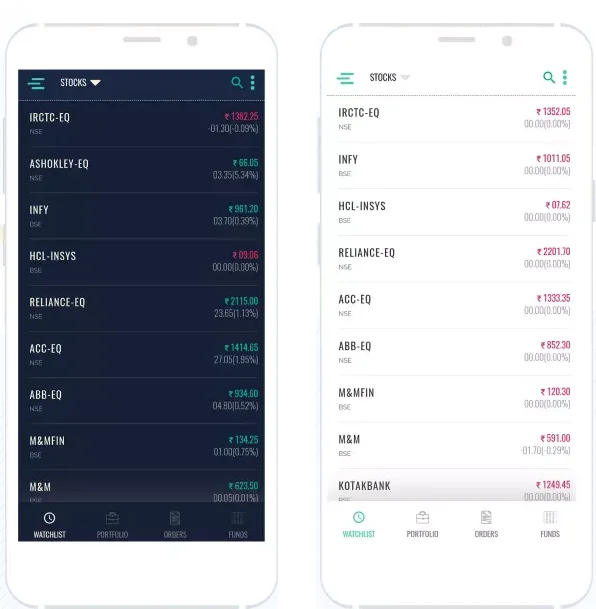Understanding How Shares Are Allotted in an IPO
Feb 16 2022 5 Min Read

A Brief Overview – Understanding Why IPOs are Popular
IPOs or initial public offerings serve as financial tools with which companies can raise public funds that they can leverage to grow and expand their business. Companies put in a lot of time and research prior to committing to going public as it leads to big changes.
On occasion, companies announce their desire to go public following which investors scramble to invest in the same such that they can diversify their portfolios and holdings. Companies that have big plans have the potential to bring in big returns provided they continue to be profitable in the future which is why IPOs are often flocked to. However, not all IPOs are able to generate sufficient traction in the market.
Why is the Decision to Go Public a Big Deal?
With an IPO, companies are able to raise capital by issuing public share ownership. This decision to go public is a major one and is only taken up provided the business model is strong enough and has the scope for ample growth in the future.
Only after a company has reached a certain level of maturity keeping in mind its growth cycle does it take a decision to go public or not. This is because while there do exist several benefits associated with public shareholding, there are also several regulatory requirements in place that must be fulfilled. Each stage of the IPO process, from filing an application for an IPO to said application being approved (or not) is tracked by reporters and frequently makes headlines.
IPOs and the State of the Market – The number of companies that issue IPOs each year varies and is indicative of the state of the economy. During the financial crisis of 2008, for instance, the IPO market performed poorly, and several companies made the conscious decision to postpone their launch into the public domain.
Issuing IPO Shares
Issuing IPO shares involves the following considerations.
- Interest vs. Allocation – When IPOs are issued, shares are meant to be allocated among investors that are interested in the same. However, just because an investor is interested in a company’s IPO offering, doesn’t necessarily imply that they will receive the same.
- Determining Share Volume – Companies going public are required to ascertain the share volume assigned to each investor. Share allotments are decided in accordance with rules outlined by the SEBI and there are category-based reservations. These categories are qualified institutional buyers, non-institutional investors and retail investors. At times, the number of shares set aside for retail investors may be oversubscribed.
Understanding Instances of IPO Oversubscription
IPOs are often oversubscribed. In order to understand what this means, consider the example mentioned below.
Company ABC’s IPO was oversubscribed by 2 times, indicating that there was twice as much demand for the stocks. The demand for ABC’s stocks, therefore, exceeded its supply. Owing to this fact, underwriters now have the authority to adjust the price of ABC’s IPO stock and generate more capital.
However, in most instances, share prices are attractively priced in order to gain interest among investors. This strategy is frequently employed to raise funds.
In the event that oversubscription occurs, the allocation of shares is impacted as is their trade. The rules that govern allotment vary from one class of investors to another.
IPO Allotment for Qualified Institutional Investors – In the event that a company is oversubscribed to by such investors, the holdings they are provided decline. This means that if company ABC was oversubscribed 4 times, institutional investor A who asked for 100,000 shares will now only receive 25,000 shares of the company.
IPO Allotment for High Net-worth Individuals – Here too, in the event that oversubscription arises within this category, individuals receive fewer shares than what they originally applied for. The total share allocated is equal to the total shares applied for divided by the number of times they have been oversubscribed.
IPO Allotment for Retail Investors – Shares are issued in lots which means that an investor can place bids in multiples of the lot size. This means that if the lot size of a company is 50, investors can place bids in multiples of 50 like 100 or 250. As per SEBI guidelines, in instances of retail investors bid applications amounting equally to the offered lots, each applicant receives at least one lot. The remainder is allocated proportionally. Oversubscription within this category results in computerized draws that are used to select applicants for IPO allotment.
Understanding the IPO Allotment Procedure
As mentioned earlier, IPO bids for retail investors are done in the form of “Lots”. Meaning you can’t subscribe for any number of shares you want. Let’s now see the procedure with the help of an example.
Suppose company ABC wants to issue 1,00,000 shares in its IPO with a lot size of 5 shares per lot. This means that each lot will comprise 5 shares and the total number of lots will be 1,00,000/5 which is 20,000 lots available for subscription. Investors can only bid with the number of lots and not shares. Once the bidding date is closes, there can be two situations
- Total cumulative bids is lesser than the total number of bids available – in this case, each bidder will be given the number of lots subscribed for.
- Total cumulative bids is more than total bids available – in this case the SEBI rules are considered where maximum number of bidders are included by giving at least 1 lot.
This however leads to more sub-cases of subscription
- Small over subscription – in this the bidders will be allotted 1 lot of shares and the balance shares left will be allotted accordingly.
- Large over-subscription – In this case since there are a huge number of bidders where giving even 1 lot is a tough ask, then a lucky draw is taken into consideration. Those who don’t get it will not get a lot of shares and the money will eventually be refunded into their account.
Possible reasons for not getting an allotment
There are mainly three reasons why you as an investor did not get a lot for the bid you made
- As mentioned above, your number did not appear in the lucky draw
- You entered your details incorrectly in the IPO subscription form
- In case of book-building IPO, if you bid for a price lower than the allotted share price after bidding is closed then those who bid lower than the price will not be considered for allotment.
Merchant Bankers and IPO Prices
Merchant Bankers conduct pre-marketing research and analysis in order to determine the price of IPO offerings. This price is crucial as it helps lure investors which is why discounted prices are often listed. Fundamental techniques help value the company in question.
A company can choose to employ one or more merchant bankers who are responsible for varied aspects of the IPO process including document preparation, marketing, diligence, and issuance.
IPOs and the Markets Today
The IPO market in India is a very attractive avenue for many investors to begin their journey in trading and with the growth of financial literacy as compared to a decade ago, the competition to get allotments is only going to be tougher. So it is advisable to always do proper research and select the IPO to invest accordingly as this helps in determining your end goal and how much risk you are willing to take with the company.
Frequently Asked Questions
IPO is an acronym used to refer to an initial public offering.
Companies use IPOs to raise capital via the issuance of public stock. The capital raised can be used to grow the company at a far larger scale.
Qualified institutional buyers, non-institutional investors and retail investors are the different categories of IPO subscribers and SEBI requires reservations for each of these categories.

